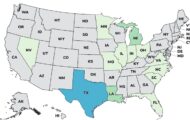This week, the U.S. Department of Labor’s Occupational Safety and Health Administration (OSHA) announced the establishment of a Whistleblower Protection Advisory Committee. This body will make recommendations to the Secretary of Labor on ways to improve efficiency, effectiveness, and transparency of OSHA’s administration of whistleblower protections.
 Dr. David Michaels, assistant secretary of labor for occupational safety and health said in the news release, “Workers who expose securities and financial fraud, adulterated foods, air and water pollution, or workplace safety hazards have a legal right to speak out without fear of retaliation, and the laws that protect these whistleblowers also protect the health, safety, and well-being of all Americans.”
Dr. David Michaels, assistant secretary of labor for occupational safety and health said in the news release, “Workers who expose securities and financial fraud, adulterated foods, air and water pollution, or workplace safety hazards have a legal right to speak out without fear of retaliation, and the laws that protect these whistleblowers also protect the health, safety, and well-being of all Americans.”
The Occupational Safety and Health Act and 20 other statutes protect employees who report “violations of various workplace, airline, commercial motor carrier, consumer product, environmental, financial reform, food safety, health care reform, nuclear, pipeline, public transportation agency, railroad, maritime and securities laws.”
The Whistleblower Protection Program prohibits employers from retaliating against employees who raise concerns or provide information to the employer or the government.
This program relates directly to food safety. On April 20, 2012, National Labor Relations Board Administrative Law Judge Arthur Amchan ruled against a Jimmy John’s francise owner, saying he unlawfully fired six workers last year when they protested a sick leave policy that the employees said “subjects the public to an increased risk of food borne disease.”
And in legislative sessions this year, Iowa and Utah passed so-called ag-gag laws, which makes recording undercover videos at agricultural facilities a criminal act. One of those videos, taken by the Humane Society at a southern California slaughter plant Hallmark and Westland Meat Packing Co. in 2008, showed downer cows being tortured and slaughtered. The video triggered the largest beef recall in U.S. history. Hallmark and Westland were removed from the school lunch program as a result.
Another undercover video showed workers abusing and torturing turkeys at the Butterball plant in North Carolina. That video prompted a raid on the facility, although a veterinarian employed by the North Carolina Department of Agriculture tipped off the company, warning them about the impending raid.
An ag-gag bill passed the Missouri house this session, but the Missouri senate passed a compromise bill with less strident language. Trespassing laws were made stricter, and now anyone who has pictures of video of animal neglect or abuse must show them to law enforcement authorities within 24 hours. SB 631 will also increase the trespassing penalty to a Class A misdemeanor.





The ag-gag law in Missouri is still, in its own way, just as restrictive.
They’re attempting to make long term undercover investigation a criminal offense. They’re putting the onus on the investigators to give video to the authorities after first filming–which, in effect, gives a heads up to the CAFO that an undercover investigation is going on.
It’s nothing more than a duplicitous way of achieving the same effect but without the actual wording of other ag-gag laws.